“A screaming comes across the sky.” – Thomas Pynchon, Gravity’s Rainbow (1973)
| Ritual, by Mo Hayder Okay detective thriller with a written-for-TV feel, entertaining but ultimately forgettable. I was far more impressed with Mo Hayder’s The Devil of Nanking. |
|
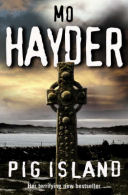 |
Pig Island, by Mo Hayder Still under the influence of The Devil of Nanking, I went looking for more Mo Hayder. Pig Island was a great disappointment. Unlikable characters, unlikely villains, and a ludicrously contrived and plainly unbelievable plot. The high point, if there was one, was the author’s attempt to wax erotic over a woman with a third leg growing out of her ass. Have I said enough? |
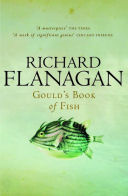 |
Gould’s Book of Fish, by Richard Flanagan Alas, I started this one but had to put it aside. Perhaps if I’d attempted to read Richard Flanagan’s book at any other time than right after finishing Roberto Bolaño’s 2666, I might have been able to read it through. But the flowery, euphemistic Victorian English in which Flanagan’s narrator writes is too much of a contrast with Bolaño’s spare, direct, robust prose. I’ll come back when Bolaño is a less powerful memory. |
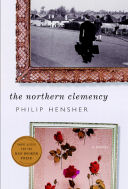 |
The Northern Clemency, by Phillip Hensher One of the more engaging novels I’ve read recently, what appears at first glance to be a gentle, modest story about middle-class British family life reveals itself to be a multi-generational saga spanning two decades; in short, a novel about everything that’s important, told with penetrating insight, brutal honesty, and wry humor. I have to share this part: the novel begins with a glimpse of Daniel Glover, 16-year-old son of Malcolm and Katherine, lounging about with a visible erection during a neighborhood party, and ends with Daniel, now a middle-aged overweight businessman, sitting down with a new copy of this very novel: “What are you reading?” Helen said coming over. “What’s it about?” Yes. It’s about people like us. Philip Hensher is a brilliant writer, and I will be back for more. |
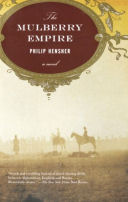 |
The Mulberry Empire, by Philip Hensher I had just finished Philip Hensher’s The Northern Clemency and wanted to read more by this author. The Mulberry Empire, a fictionalized account of British empire-building and subsequent defeat in Afghanistan between 1839 and 1842, is larger in scope but every bit as engaging as The Northern Clemency. Parts of it, even a century and a half after the events depicted, are terrifying. Anyone who thinks Afghanistan will be a pushover this time around needs to bone up on history. |
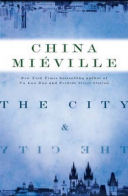 |
The City & the City, by China Miéville When I read words or names I can’t mentally pronounce, I stumble. A novel that would otherwise be a pleasant read becomes an effort of will. Philip Pullman did it to me in his brilliant His Dark Materials trilogy (I still don’t know how to pronounce “Pantalion”). This time it’s China Miéville with The City & The City. Let’s start with the dude’s own name, China Miéville. Where, you ask, did a white British boy get a name like that? I’ll wager it’s not the name that’s on his birth certificate. And then I started reading. Reading, and stumbling over, names like Bes?el, Bes?, Borlú, Ul Qoma, Corwi, Iy Déurnem, YulSainStrász (html tags for some of the characters used in these names don’t even exist, that’s how obscure and foreign they are) . . . stumbling nearly to the point of throwing the book across the room. But I slogged on, because why? Because I’m a sucker for alternate realities. Bes?el and Ul Qoma, two cities vaguely located in southeastern Europe, inhabit the same geographical space. Each city contains “crosshatched” areas where residents of one city can see into the other city . . . and not just see, but smell, hear, or even walk into and interact with the citizens there, save for the fact that it’s culturally taboo and also illegal to do so, so much so that inhabitants of the co-located cities have learned from childhood on to “unsee” the other. Which is such a cool idea, I was sucked in despite all the tongue-tripping names. But the book doesn’t live up to its grand concept. At the center of the plot is a murder, and the novel is essentially a police procedural. Despite the magical co-existence of two (or three, or possibly four) alternate realities, the murder, the cop stuff, and the ultimate resolution are all fairly mundane. Other than gee-whizzing over the concept of simultaneous realities, I felt that China Miéville didn’t really follow through with his great idea. I wanted more than I got. And I still can’t pronounce China Miéville’s name, damn it. |